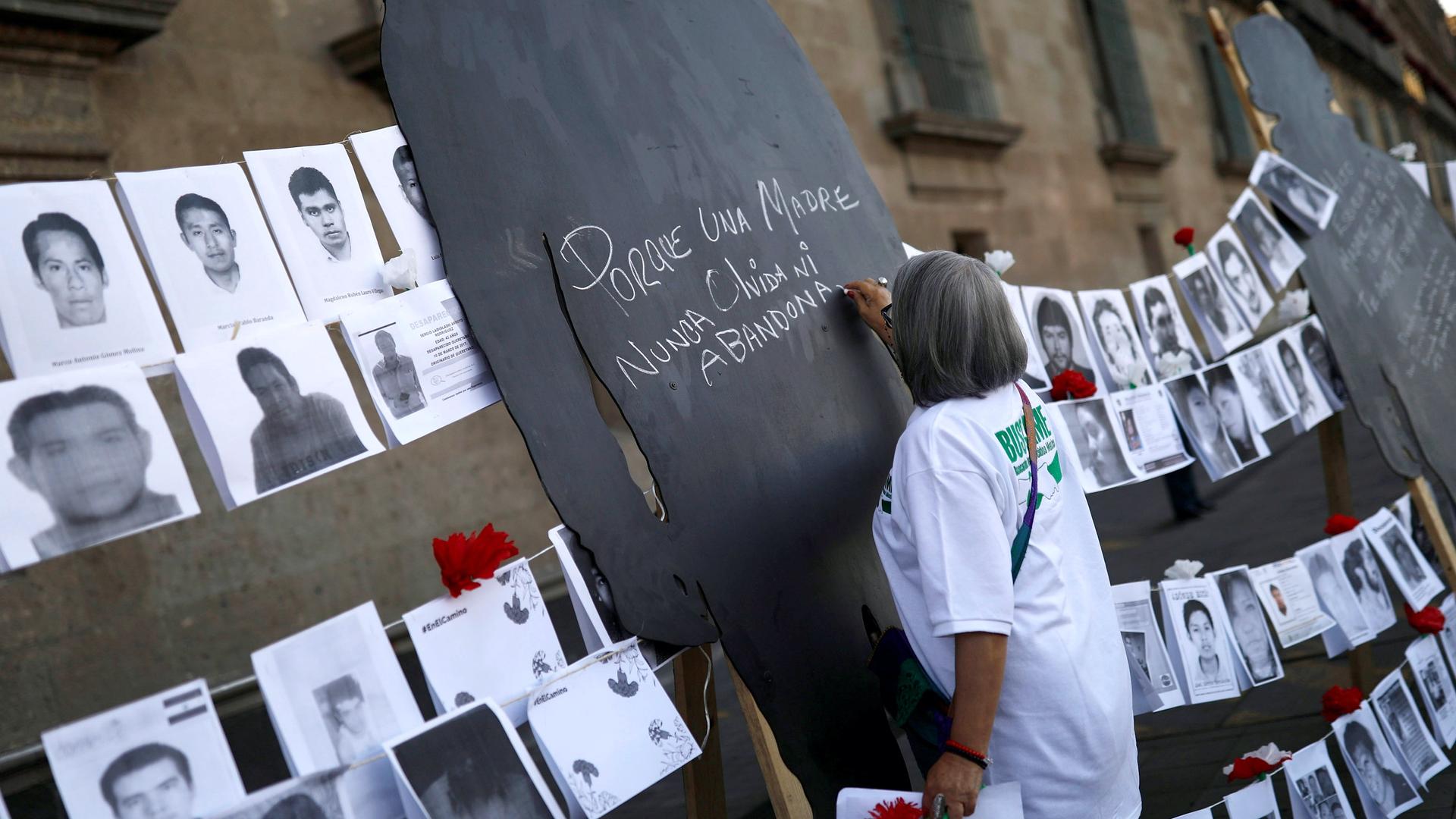In Mexico, the unending drug war takes its toll with thousands of disappearances
Families of missing persons across Mexico are calling on their federal government to step up their efforts in searching for and finding disappeared people.
A report issued on July 14 by Mexico’s National Search Commission said 73,218 people have been confirmed missing since 1964, and almost all of them — 71,678 — since 2006 when organized crime and drug-trafficking violence in the country began to increase.
In Guadalajara, Mexico’s second-largest metro area, about a half dozen women donned face masks and held posters outside of their state forensics laboratory, demanding authorities resume searches, which have been put on hold since the beginning of the coronavirus pandemic this year.
Related: When ‘treasure’ is a missing person’s remains
“We want them to please go out and look for our sons. … They’re not investigating anything, so it’s like the pandemic has fit them like a glove. We demand that, with the proper precautions, they go out and look for our sons.”
“We want them to please go out and look for our sons,” said Marta Leticia García in Guadalajara on Tuesday, in a video posted by the news website ZonaDocs.
“They’re not investigating anything, so it’s like the pandemic has fit them like a glove. We demand that, with the proper precautions, they go out and look for our sons.”
These disappearances take place against the backdrop of a sophisticated society that functions parallel to stark inequality and unending armed conflict. Most cases go unsolved. Dozens of groups of relatives all over the country routinely petition authorities to search for their missing loved ones, or they organize search parties to look for themselves.
Related: Killing of environmental activists has become ‘norm’
“Authorities don’t find persons. They don’t even do a very good job looking for them. The ones who actually are doing the job are the family members, mostly mothers.”
“That’s symptomatic of the generalized nature of the problem,” said Alejandro Anaya Muñoz, a professor of international relations and human rights at ITESO University in Guadalajara. “Authorities don’t find persons. They don’t even do a very good job looking for them. The ones who actually are doing the job are the family members, mostly mothers.”
The two groups most frequently targeted by abductions are men ages 18 to 25, and girls and women ages 12 to 18, according to government figures. This suggests that many of those abducted are young men with a connection to criminal organizations, or girls and young women abducted and forced into sexual slavery, Anaya said.
But other missing persons do not have any direct link to organized crime. In 2014, 43 university students from Ayotzinapa Rural Teachers’ College went missing one night in the city of Iguala, in the southeastern state of Guerrero. Theirs has become the country’s most emblematic case of missing persons, with people marching in countless demonstrations across the country since the students disappeared.
Related: Case of 43 missing students from Mexico still a mystery, 5 years later
When President Andrés Manuel Lopez Obrador was elected in 2018, he vowed to find the students. Many nongovernmental organizations have complained that the government channeled resources to those missing students, but not the other 71,000 people who have gone missing since 2006, Anaya said.
Yet, the biggest breakthrough in the missing students’ case came only this month when investigators said they found the remains of one student. There have been no convictions.
Mexico’s National Search Commission has not elaborated on discrepancies between different reports issued, said Efraín Tzuc, a research assistant with the investigative journalism group Quinto Elemento Lab, which maintains a map that identifies hidden graves across the country where missing persons are likely buried.
The commission’s report last week had major discrepancies with an earlier one released in January, but officials did not release full details of how they collected and analyzed their information, so more people may be unaccounted for in that count, he said.
This indicates a continuing lack of accountability, Tzuc said. Even reports like the one released last week are not enough to change Mexico’s culture of violence — or for the disappearances to stop, he said.
